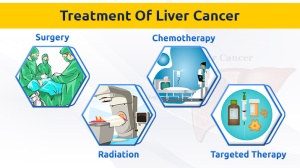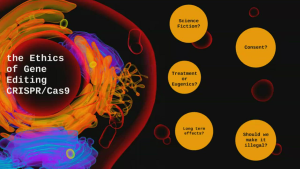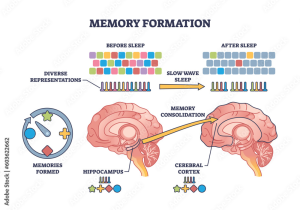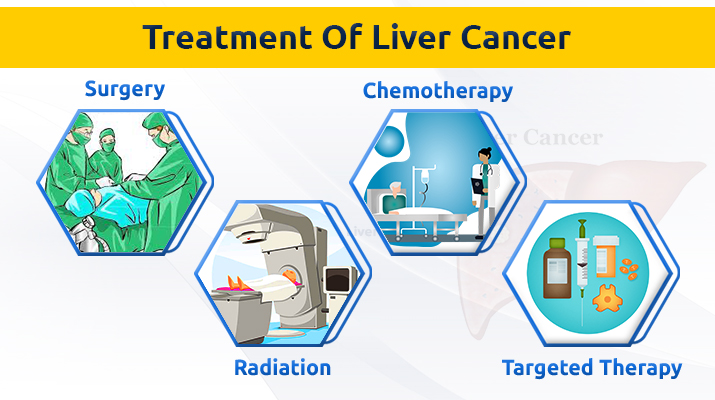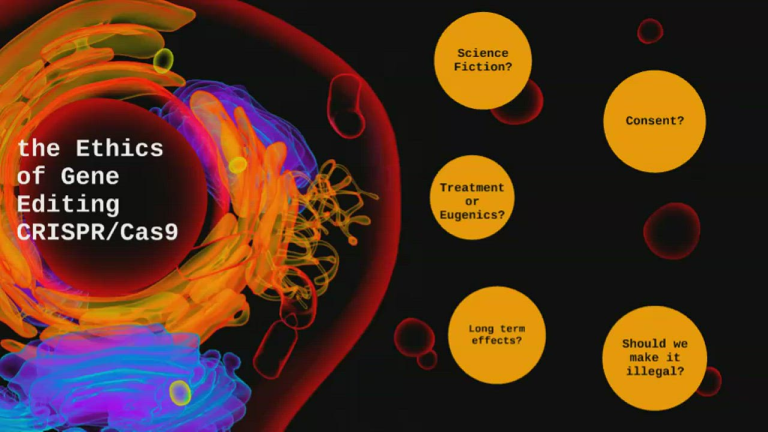AI in pediatric cancer risk assessment is transforming how we predict relapse in children with brain tumors. Recent studies have shown that an advanced AI tool analyzing multiple MRI scans over time provides insights far surpassing traditional methods. This revolutionary technology aids in more accurately predicting pediatric glioma recurrence, allowing healthcare providers to better tailor treatment plans. Utilizing innovative techniques like temporal learning, the AI model discerns subtle changes in the scans, offering hope for improved outcomes through early intervention. With such advancements, the future of risk assessment in cancer care looks promising, not only simplifying the process for families but also enhancing the precision of medical responses.
The use of artificial intelligence in evaluating the potential risk of relapse in pediatric cancers is paving the way for breakthroughs in personalized medicine. Techniques like machine learning and data analysis of sequential MRI scans are at the forefront of this initiative, revealing patterns that can significantly influence treatment strategies. Enhanced methodologies are being developed to assess the likelihood of pediatric glioma recurrence, thus streamlining the care process for young patients and their families. By leveraging AI tools for cancer prediction, the healthcare sector aims to provide timely interventions that can potentially mitigate severe relapses. This innovative approach could redefine how we manage ongoing monitoring and long-term health outcomes in pediatric oncology.
The Role of AI in Pediatric Cancer Risk Assessment
Artificial Intelligence (AI) is revolutionizing the approach to pediatric cancer risk assessment, particularly in the evaluation of conditions like gliomas. With traditional methods often falling short in accurately predicting recurrence, innovations such as AI-driven tools are stepping in to fill these gaps. By analyzing a vast array of MRI scans over time, AI systems can identify nuanced patterns that might elude human detectability. This advancement does not only promise to make assessments more precise but also aims to alleviate the burden of constant imaging on young patients and their families.
The integration of AI into pediatric oncology signifies a paradigm shift in how we understand and manage the risks associated with cancer relapse. These AI algorithms utilize advanced temporal learning techniques, allowing them to learn from multiple imaging sessions rather than relying on isolated data points. This retrospective learning can lead to more informed decisions about a child’s prognosis, which is crucial given the emotional and physical toll of pediatric gliomas. Overall, the deployment of AI tools for cancer prediction holds the potential to significantly enhance early warning systems for pediatric cancer recurrence.
AI Tools for Cancer Prediction: Key Developments
Recent studies have shown that AI tools are capable of predicting cancer relapse with an accuracy rate that far exceeds traditional predictive models. In the case of pediatric gliomas, researchers at Harvard utilized almost 4,000 MRI scans to train their AI systems, emphasizing the relevance of a multi-faceted approach to cancer prediction. By employing temporal learning, the AI could track subtle changes over time in the images, thereby honing its predictive capabilities. This development is monumental, as predictions based solely on single scans yield only a 50% accuracy rate.
The implications of these AI developments are profound for young cancer patients and their treatment protocols. The enhanced predictive accuracy achieved through AI not only aids in identifying high-risk patients but could also lead to tailored treatment pathways that minimize the necessity for frequent imaging. Such personalized care would allow healthcare providers to reserve intensive follow-up care for those who truly need it, all while ensuring that low-risk patients are not subjected to unnecessary stress.
Understanding Pediatric Glioma Recurrence Risks
Pediatric gliomas present unique challenges in terms of recurrence risks, often necessitating vigilant monitoring post-treatment. This need has historically relied on conventional imaging tests, such as MRIs, which can be a strenuous process for children undergoing recovery. Many of these tumors are manageable with surgery alone, but the variability in recurrence rates makes predicting outcomes profoundly important for families and healthcare providers alike.
The research into the predictive capabilities of AI highlights the urgent need for more sophisticated tools in assessing these recurrence risks. Findings suggest that AI-driven models can detect early warning signs from multiple imaging sessions, providing a more reliable foundation for treatment decisions. As our understanding improves, it may reshape the standard practices for monitoring pediatric glioma patients, enabling a shift towards more proactive and less intrusive approaches to oncology care.
Temporal Learning in AI: A Game Changer for Healthcare
Temporal learning is emerging as a transformative technique in the realm of medical imaging and predictive modeling. By utilizing sequences of MRI scans collected over time, rather than relying on single images, AI systems are now equipped to recognize patterns and changes that signify the impending risks of cancer recurrence. This methodological advancement is particularly salient in pediatric care, where traditional assessment may prove inadequate.
The strength of temporal learning lies in its ability to provide clinicians with a continuum of data that reflects the evolving nature of tumors. This can lead to a substantial uptick in accuracy for predicting relapse, ultimately guiding healthcare interventions more effectively. As researchers refine these AI models, the promise of temporal learning could revolutionize how healthcare systems monitor and react to the needs of pediatric cancer patients.
MRI Scans in Cancer Care: Evolution of Diagnostic Practices
MRI scans have long been a cornerstone in oncology, providing critical insights into tumor presence, size, and progression. In pediatric cases, the utilization of MRI imaging is paramount for evaluating gliomas. However, frequent imaging can pose excessive emotional and physical challenges for young patients, fostering a need for enhanced methodologies that can streamline this process.
The introduction of AI tools to interpret MRI scans marks a significant evolution in oncology practices, especially for pediatric populations. AI technologies now allow for the synthesis of information derived from several scans, enabling a more comprehensive understanding of tumor behavior over time. This innovation not only supports better decision-making in treatment plans but also aligns with the growing emphasis on minimizing hospital visits and reducing the psychological burden on children.
Predicting Cancer Relapse with AI: A New Frontier
The ability to predict cancer relapse effectively is crucial in managing treatment for pediatric patients. AI has emerged as a powerful ally in this area, with studies demonstrating its capability to forecast the likelihood of relapse after treatment for cancers like pediatric gliomas. The applications of AI in predicting cancer relapse are multifaceted, employing technology that learns from a myriad of imaging data points.
Through advanced computational algorithms, AI can analyze changes in MRI scans that might otherwise go unnoticed by human eyes. This predictive power enables a more proactive approach in treatment, ensuring that children who are at higher risk of recurrence receive the necessary interventions, potentially altering the trajectory of their cancer care. As AI continues to evolve, its role in predicting cancer relapse will undoubtedly become more critical for improving patient outcomes.
The Importance of Multidisciplinary Collaboration in Cancer Research
Collaboration between various academic and clinical institutions plays a crucial role in advancing cancer research, particularly in pediatric applications. The study conducted by researchers from Mass General Brigham, Boston Children’s Hospital, and Dana-Farber exemplifies how pooling resources and expertise can lead to significant breakthroughs in predictive modeling for pediatric gliomas. Such partnerships generate a more comprehensive dataset, enhancing the robustness of AI training given the diverse patient populations and treatment experiences.
The exchange of knowledge and methodologies across institutions can expedite the validation and application of innovative techniques like those powered by temporal learning in AI. Furthermore, this collaborative spirit sets the foundation for future clinical trials that not only test the efficacy of AI-informed predictions but also assess their practical implementation in today’s healthcare settings. Ultimately, unity in academic efforts is vital to develop effective strategies that improve patient care for children facing the challenges of cancer.
Future Directions for AI Research in Pediatric Oncology
The future of AI research in pediatric oncology looks promising, with ongoing studies aimed at enhancing the precision and efficacy of cancer risk assessments. By refining AI tools, researchers hope to create models that can provide real-time insights into the likelihood of recurrence for pediatric cancer patients, thus enabling tailored treatment pathways that would bridge the gap between precision medicine and practical oncology.
Looking ahead, the potential applications of AI in oncology extend beyond predictive modeling. Innovations could lead to improved methods for monitoring post-treatment recovery, assessing the effectiveness of therapeutic interventions, and reducing the frequency of invasive procedures like MRIs. As technology progresses, the integration of AI tools into routine cancer care will likely foster a new era of personalized medicine for children, driven by data and technological advancements.
Ethical Considerations in AI Applications for Pediatric Patients
While the benefits of utilizing AI tools in pediatric cancer care are significant, ethical considerations cannot be overlooked. The integration of AI may introduce complex issues surrounding data privacy, consent, and equitable access to technology. Especially in pediatric cases, parental consent becomes paramount, raising questions about the rights of children and their families in the age of digital health solutions.
Ensuring that AI technology is deployed responsibly in pediatric oncology necessitates adherence to ethical guidelines and robust regulatory frameworks. Moreover, continuous dialogue among researchers, healthcare providers, and families is essential to address concerns and cultivate trust in AI applications. Moving forward, prioritizing ethical considerations will be critical to leveraging AI effectively and equitably in the care of children with cancer.
Frequently Asked Questions
How does AI improve pediatric cancer risk assessment in glioma patients?
AI enhances pediatric cancer risk assessment by analyzing multiple MRI scans over time using a technique called temporal learning. This method allows the AI tool to recognize subtle changes in brain scans, improving the prediction of glioma relapse compared to traditional single-scan approaches.
What is temporal learning in AI and how is it used in cancer prediction?
Temporal learning in AI refers to the ability of the model to analyze sequences of data, such as MRI scans taken over time. In pediatric cancer risk assessment, this approach helps accurately predict the risk of glioma recurrence by learning from changes detected across multiple images, enhancing predictive accuracy.
Can an AI tool predict pediatric glioma recurrence better than traditional methods?
Yes, studies indicate that AI tools trained with temporal learning can predict pediatric glioma recurrence with accuracy rates between 75-89%, significantly outperforming traditional methods that achieve only about 50% accuracy based on single MRI scans.
What role do MRI scans play in pediatric cancer risk assessment using AI?
MRI scans are critical in pediatric cancer risk assessment as they provide the visual data needed for AI analysis. By utilizing temporal learning, AI can leverage information from multiple MRI scans to more effectively identify changes and predict relapse in children with gliomas.
What are the implications of AI predicting cancer relapse in pediatric patients?
The implications are profound; accurate AI predictions can lead to personalized care strategies, allowing low-risk pediatric patients to undergo fewer stressful imaging sessions while enabling early intervention for high-risk patients, thereby improving overall treatment outcomes.
Are there any limitations to using AI in pediatric cancer risk assessment?
While AI shows promise in improving pediatric cancer risk assessment, limitations include the need for further validation across various clinical settings and the continuation of research to confirm the clinical efficacy before widespread adoption.
What is the significance of the recent study published in The New England Journal of Medicine AI regarding pediatric gliomas?
The significance lies in the study’s demonstration that an AI tool utilizing temporal learning can predict pediatric glioma relapse with high accuracy, showcasing a potential shift in how pediatric cancer care is approached and managed, particularly regarding imaging frequency and therapeutic strategies.
| Key Point | Description |
|---|---|
| AI Tool Efficiency | An AI tool predicts relapse risk in pediatric glioma patients with 75-89% accuracy, outperforming traditional methods. |
| Temporal Learning Technique | The AI utilizes temporal learning, analyzing multiple MRI scans over time to identify risk patterns. |
| Change in Patient Monitoring | The ability to predict relapses might allow for reduced imaging frequency in low-risk patients. |
| Clinical Implications | The research aims to initiate trials to implement AI predictions in clinical care for pediatric patients. |
Summary
AI in pediatric cancer risk assessment is revolutionizing how healthcare professionals predict relapse in children with gliomas. By utilizing advanced analytical techniques, such as temporal learning from multiple MRI scans, AI tools deliver significantly improved accuracy over traditional methods. This innovative approach not only enhances prediction reliability but also holds the promise of optimizing patient monitoring practices and treatment strategies.

